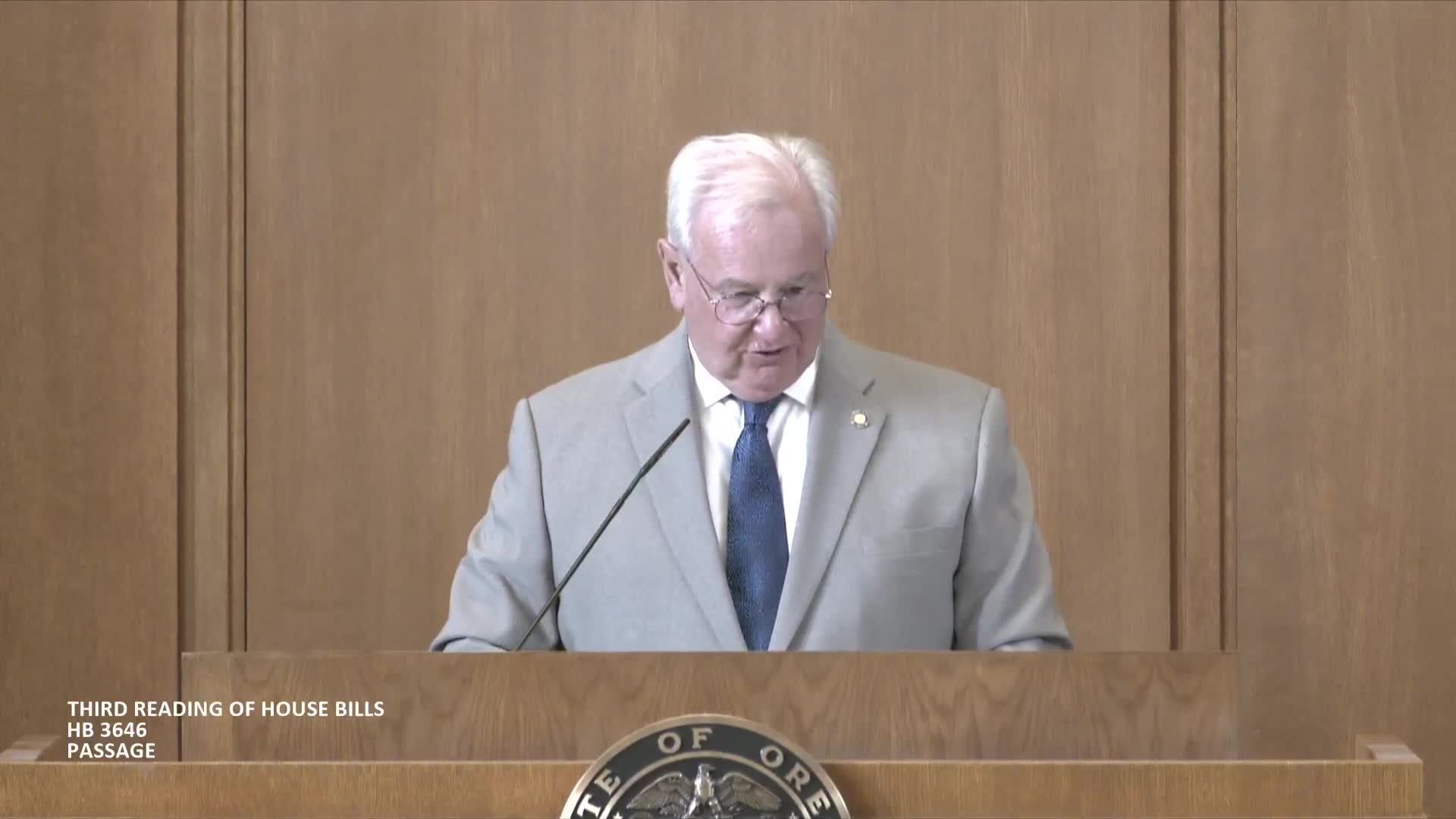House passes bill allowing discretionary procurement preference for employee‑owned firms
Get AI-powered insights, summaries, and transcripts
Subscribe
Summary
House Bill 36 46 passed to let public contracting agencies optionally favor businesses at least 50% employee owned (including ESOPs) by allowing an awarding preference when bids fall within 5% of the lowest bid; lawmakers debated potential effects on small entrepreneurs and in‑state businesses.
The House voted to pass House Bill 36 46 on third reading, advancing a new discretionary procurement preference that allows public contracting agencies to favor businesses that are at least 50% employee owned, including those structured as employee stock ownership plans (ESOPs).
Under the measure, a contracting agency may grant preference to eligible employee‑owned firms when their bid is within 5% of the lowest responsive bid. Sponsors described the preference as a modest, voluntary tool to support worker ownership and local economic resilience; supporters noted ESOPs tend to invest locally and increase employee retention.
Representative Tran, the bill sponsor on the floor, said: “More opportunities to build ownership is good for the workers, good for the businesses, and good for Oregon.” Proponents highlighted examples such as Bob’s Red Mill and other long‑standing employee‑owned firms as models of local reinvestment.
Opponents warned the preference could disadvantage nascent small businesses and minority‑ or women‑owned firms that lack the legal and financial resources to form ESOPs. Several members argued the preference could be claimed by larger out‑of‑state ESOPs with only limited in‑state presence, because current bill language requires only that an employee owner reside in Oregon rather than the company having its principal place of business in the state. Those concerns were raised repeatedly during floor debate and influenced several members’ no votes.
The bill passed after debate and is now headed to the Senate for consideration. It amends procurement preference language and is discretionary for contracting agencies; it does not mandate changes to every procurement process.
